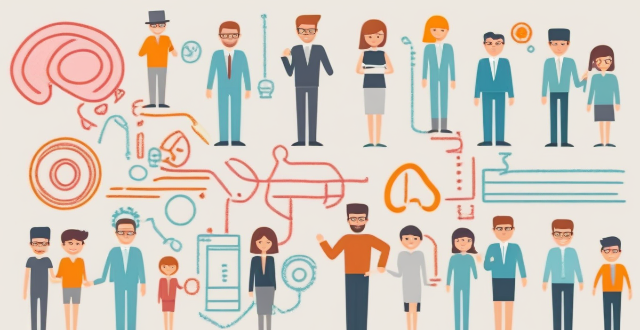Academic challenges such as debate teams and science competitions promote leadership skills in students by fostering critical thinking, collaboration, innovation, problem-solving, self-confidence, time management, and interpersonal skills. These skills are essential for effective leadership and can help students succeed both academically and professionally.

Academic Challenges and Leadership Skills
Debate Teams
Promote Critical Thinking and Public Speaking
Debate teams are an excellent way to promote critical thinking and public speaking skills in students. These skills are essential for effective leadership, as leaders need to be able to articulate their ideas clearly and persuasively. In a debate setting, students learn how to analyze arguments, identify weaknesses, and construct counter-arguments. This process helps them develop the ability to think on their feet and communicate their thoughts effectively.
Encourage Collaboration and Teamwork
Debate teams also encourage collaboration and teamwork among students. Leaders must be able to work well with others and build strong relationships. By participating in debates, students learn how to work together towards a common goal, which is essential for success in any leadership role.
Science Competitions
Foster Innovation and Creativity
Science competitions foster innovation and creativity in students. Leaders need to be able to think outside the box and come up with new solutions to problems. By participating in science competitions, students are encouraged to explore new ideas and push the boundaries of what is currently known. This can help them develop the innovative thinking skills necessary for effective leadership.
Teach Problem-Solving Skills
Science competitions also teach problem-solving skills, which are crucial for effective leadership. Leaders must be able to identify problems and find solutions that work. By participating in science competitions, students learn how to approach complex problems systematically and develop strategies for finding effective solutions.
Benefits of Academic Challenges for Leadership Development
Build Self-Confidence
Participating in academic challenges can help build self-confidence in students. Leaders need to have confidence in themselves and their abilities to succeed. By participating in debates or science competitions, students gain experience presenting their ideas and defending their positions, which can help them develop the self-confidence necessary for effective leadership.
Develop Time Management Skills
Academic challenges require students to manage their time effectively, as they often have to balance schoolwork with preparation for competitions. Leaders must be able to manage their time effectively to prioritize tasks and meet deadlines. By participating in academic challenges, students learn how to manage their time efficiently, which can help them develop strong time management skills.
Enhance Interpersonal Skills
Finally, academic challenges can enhance interpersonal skills in students. Leaders need to be able to communicate effectively with others and build strong relationships. By participating in debates or science competitions, students learn how to work with others towards a common goal, which can help them develop strong interpersonal skills.
In conclusion, academic challenges such as debate teams or science competitions promote leadership skills in students by fostering critical thinking, collaboration, innovation, problem-solving, self-confidence, time management, and interpersonal skills. These skills are essential for effective leadership and can help students succeed both academically and professionally.